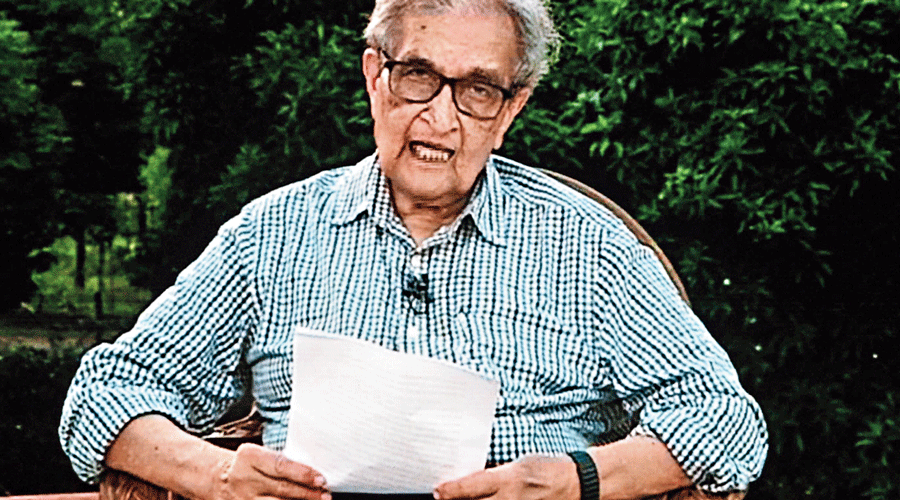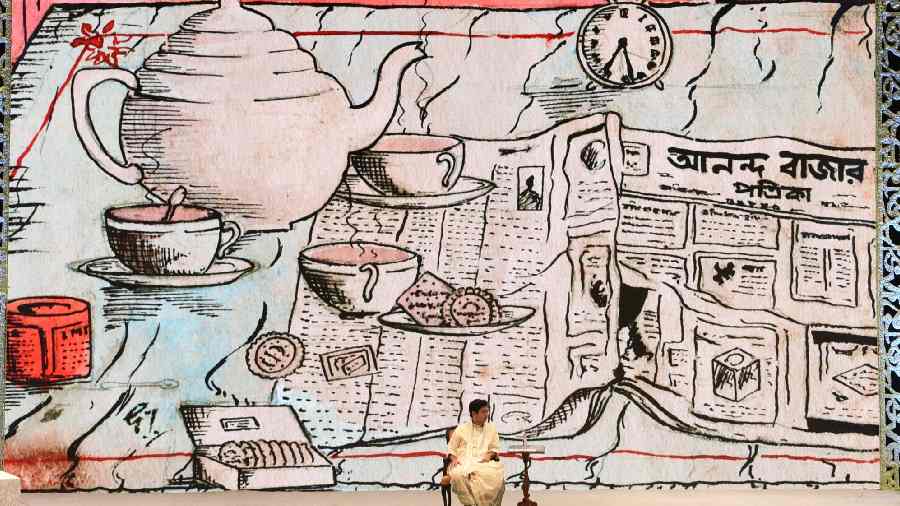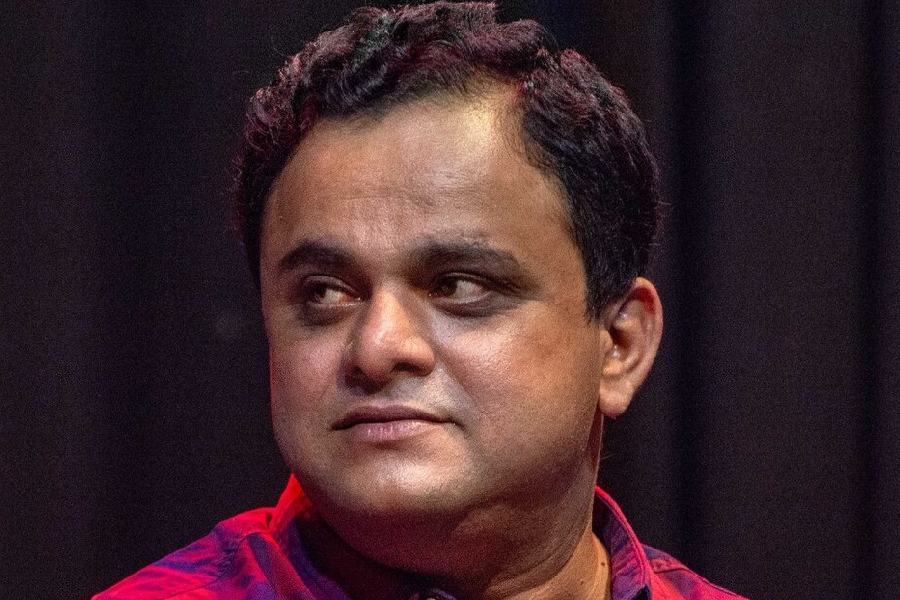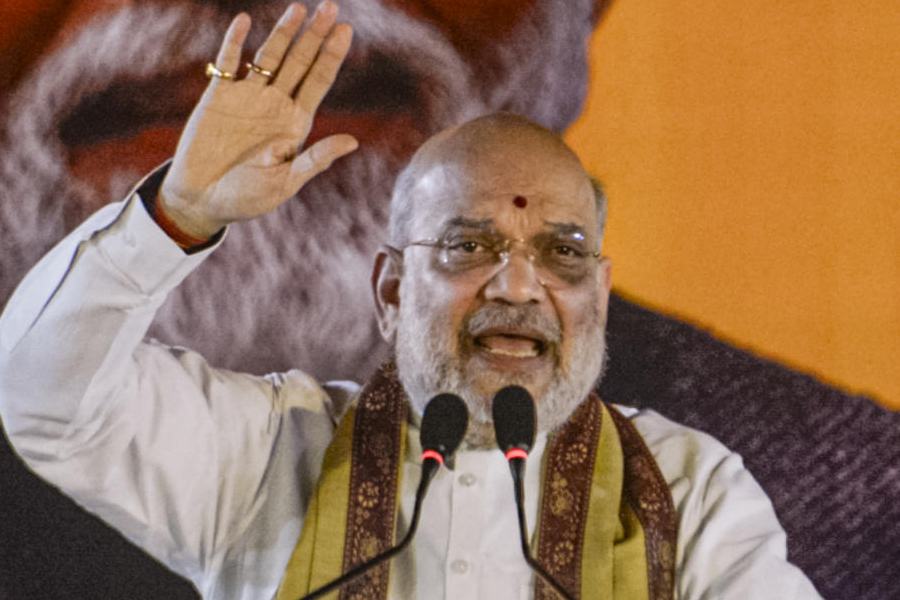Good batters hit centuries, great ones take fresh guard upon hitting one. It’s that call and commitment to the rites of greatness that resounded as Anandabazar Patrika celebrated its centennial year on Saturday.
The world has changed over the past hundred years, and it has changed not enough. We were in 1922, as we are now, just a few years in recovery from the killer lash of a global pandemic. It was the Spanish Flu then, it is Covid-19 now. The tasks of humanity coping with its circumstances remain unfinished; so too the tasks Anandabazar set out for itself a century ago.
As Amartya Sen, chief guest at the occasion, said in a video message: “Anandabazar has persisted with the principles it set out a hundred years ago…. We need at this time, when the nation is being divided, between Hindus and Muslims by forces of political opportunism, and our unity is being destroyed, a powerful voice….We are grateful Anandabazar is fulfilling that role….”
Atideb Sarkar, the group’s chief editor, had underlined ABP’s commitment to inclusive philosophy just ahead of Sen. “We believe that social harmony is necessary for national unity. Polarisation fetches eyeballs and perhaps helps win some elections. But it does not make the country stronger,” he had said in his address.
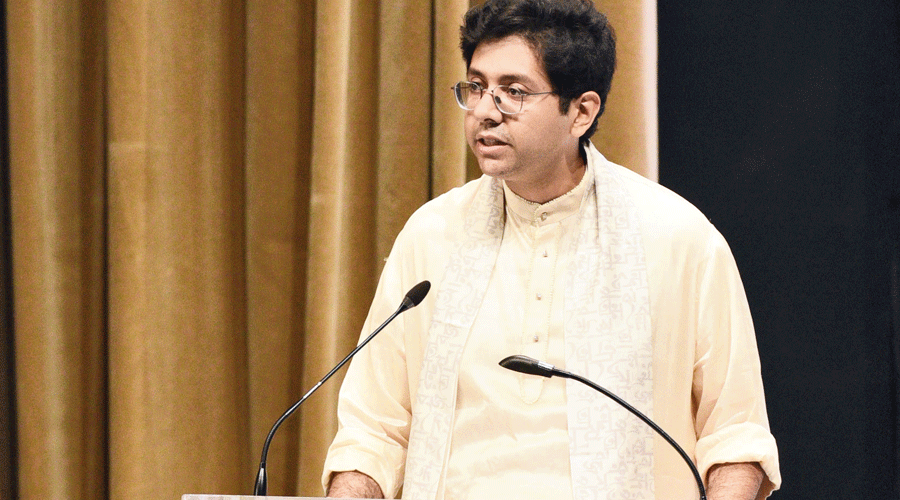
Chief editor Atideb Sarkar speaks at the centenary celebration. Pradip Sanyal
Sen referred to Anandabazar Patrika’s nationalist past and said a couple of his relations who worked at the newspaper (and at Hindustan Standard, its English sibling) went to jail during the British era. He recalled going to meet them and wondering when the practice of imprisoning people for political reasons without being proven guilty would end.
Referring to the current situation, Sen said: “We got Independence but people are still being imprisoned for political reason without being proven guilty of any crime.”
He spoke in this context of activist Umar Khalid, who has been in jail for more than a year and a half without a trial having begun. The world has changed since 1922, and yet it hasn’t changed enough.

We were ruled at the time by an entity few would care to know: King George V was Emperor of India, and the Earl of Reading his Viceroy in Delhi. It was the year of the discovery of Mohenjodaro and the opening of our subcontinent’s past as a cradle of ancient civilisation.
The bloodiest war in human history had ended, but an even bloodier one had just been seeded. Inflation soared in Germany, and national pride plunged so alarmingly low that Adolf Hitler would probably have had to be invented if he wasn’t already lurking about to grab his hour.
Josef Stalin assumed charge of the Soviet Union that year, as did Benito Mussolini in Italy. Ukraine, Belarus and the Trans-Caucasus merged into Russia. The first successful treatment of diabetes with insulin was conducted, the BBC began radio broadcasts and T.S. Eliot published The Waste Land.
At home, it was the year of the Chauri Chaura carnage and the subsequent arrest and conviction of Mahatma Gandhi for sedition.
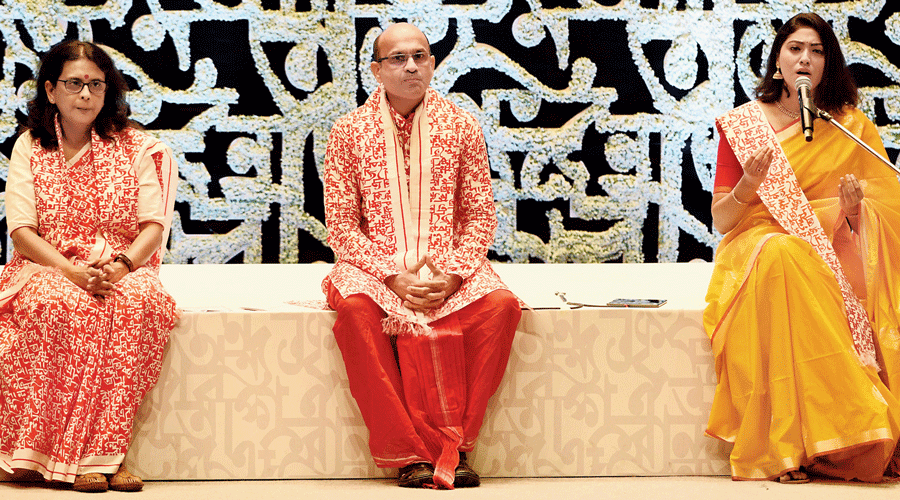
Ishani Datta Ray, editor, Anandabazar Patrika; Dhruba Mukherjee, CEO, ABP; and singer Samadipta Mukherjee. Pradip Sanyal
Among the notables born that year were Bhimsen Joshi, S.H. Raza, Har Gobind Khurana, Hrishikesh Mukherjee, Dilip Kumar and Ajit of the loins. None of these births were worth newspaper mention at the time.
In the middle of all of this was triggered to birth by two young nationalists — Prafulla Kumar Sarkar and Sures Chanda Majumdar— an evening daily that for a hundred years now has been known as Anandabazar. A four-pager, it came off a lino press on Mirzapore Street — a thousand copies in all of which 600-700 are known to have been sold. And because it was the day of Holi, it came printed in red ink on red newsprint. The British saw red, quite literally; they’d say the arrival of ABP was a danger signal.
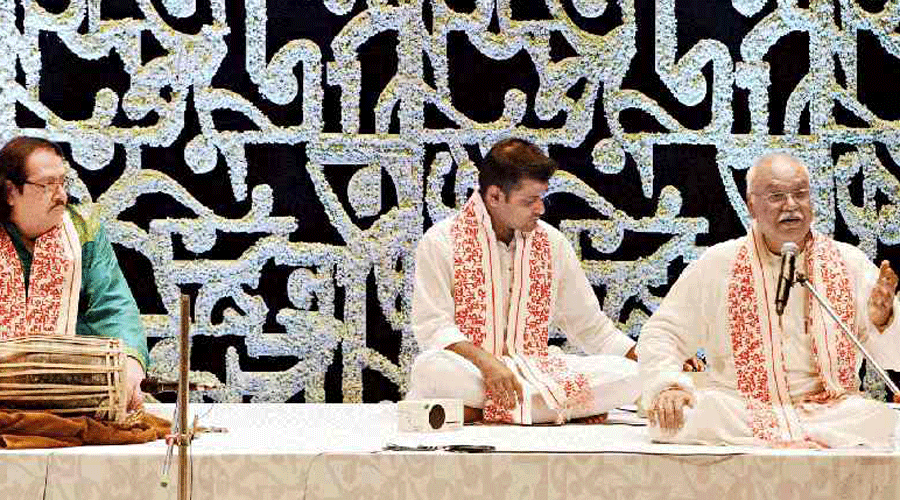
Singer Mohan Singh Khangura (right) and percussionist Biplab Mondal (left) along with an accompanying artiste. Pradip Sanyal
And so it was that the Biswa Bangla International Convention Centre, the venue for Saturday’s centenary events, was a cascade of red — the ABP alphabet soup splashed across the saris and kurtas of those that make up this seminary of public engagement through journalism, literature, culture and criticism.
In the time since it came into being, ABP has become the mother ship of a media armada that rides multiple platforms. But the credo, variously articulated over the years, has remained broadly the same: championship of free enterprise and individual freedoms, the unwavering spirit of inquiry and loyalty to the reader.
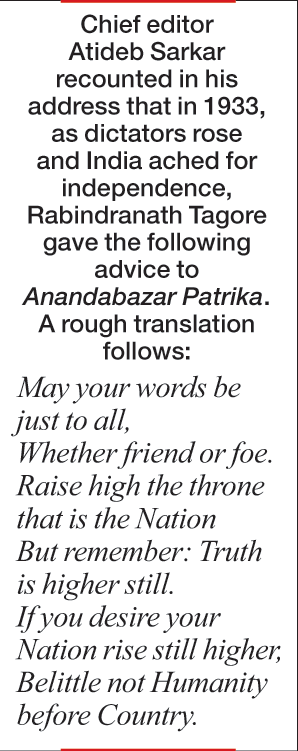
As Atideb Sarkar said: “Independent journalism often draws ire on social media. It also meets the anger of governments at state and Centre, the authorities are now more sophisticated with their use of law, technology and commerce, and more ruthless in their punishment of criticism.
“As the world changes, we will stay true to ourselves.
“We will continue to provide sound, independent journalism in the public interest. That means doing our work ethically and with rigour. It also entails holding the powerful to account, even in adversity.”
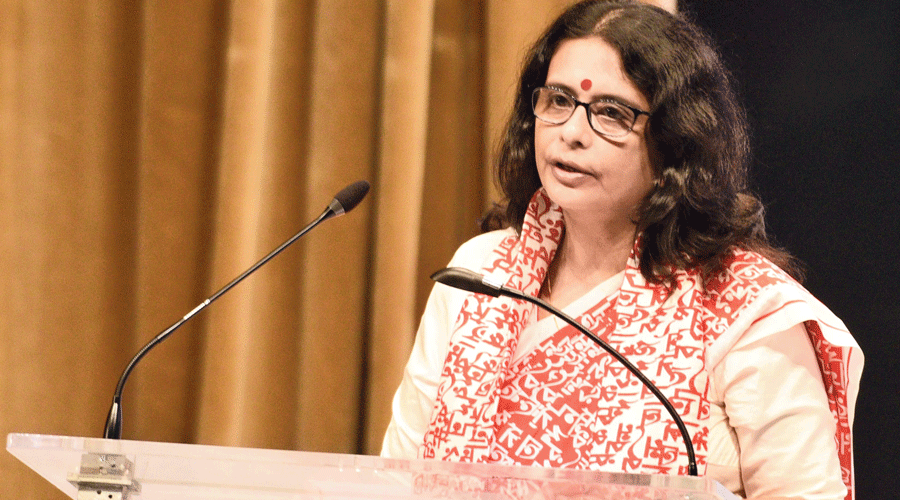
Ishani Datta Ray, editor, Anandabazar Patrika, delivers the welcome address. Pradip Sanyal
Ishani Datta Ray, the first woman to helm Anandabazar’s editorial deck, was equally emphatic in spelling out the fundamentals as ABP marks out the crease afresh at hundred. “To question,” she said, “is our dharma, and our loyalty, as many of our illustrious editors have said, is to the reader.”
Datta Ray spoke briefly to The Telegraph ahead of centenary observances, and asserted that though the challenges in the competitive media market were many, she continued to invest faith in the written word.
“We believe in storytelling and good story telling, in the power of prose, there are readers for a story well told. There is a line they say about us after all the discourse on news is done: ‘Anandabazar ki bollo?’ We matter, what we say matters.”

